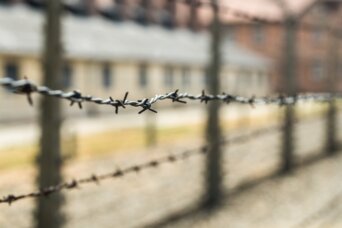- About
- Topics
- Story
- In-Depth
- Picks
- Opinion
- News
- Donate
- Signup for our newsletterOur Editors' Best Picks.Send
Read, Debate: Engage.
| topic: | Health and Sanitation |
|---|---|
| located: | South Africa |
| editor: | Bob Koigi |
The recent decision by some governments to release detainees in order to depopulate prisons as the coronavirus pandemic spread across continents is laudable but has also brought into sharp focus the urgent need to have guidelines on how to handle the world’s forgotten during pandemics and catastrophes while ensuring that their basic rights are respected and upheld.
Prisons and detention centers are known for chronic overcrowding with access to healthcare and hygiene being a daily struggle. With the emergence of COVID-19 it has particularly become impossible to practice social distancing. The results are becoming devastating as these institutions become the weakest link in the fight against the contagion.
In South Africa which is considered one of Africa’s economic powerhouses, the 243 correctional facilities are heavily overpopulated and under resourced. The over 160,000 detainees are expected to share approximately 118,000 bed spaces. Such close proximity not only put the detainees in danger but those they interact with including staff and families. Indeed some 4447 staff and prisoners in South Africa have contracted the virus with 55 fatalities. In the United States whose prison population has borne the brunt of the virus, over 64,000 cases and 651 deaths have been reported so far.
In many instances majority of those in prison are there for minor offences including exercising their rights to freedom of association, expression, and being prisoners of conscience a situation that has seen the global prisoner’s population now at a staggering 11 million. Setting the minor offenders free clears space in the correctional facilities which goes a long way in taming the disease spread. Add to the list pregnant women, minors and old people with pre-existing conditions and the burden on the detention centers is greatly reduced.
As the novel virus evolves and pose new challenges every day, governments are grappling with limited resources which are dedicated to immediate medical needs. Correctional facilities may not be prioritized in the allocations. The world is now sitting on a powder keg and urgently need to rethink prisoners’ situation and rights.
Image by Luke Lawreszuk

